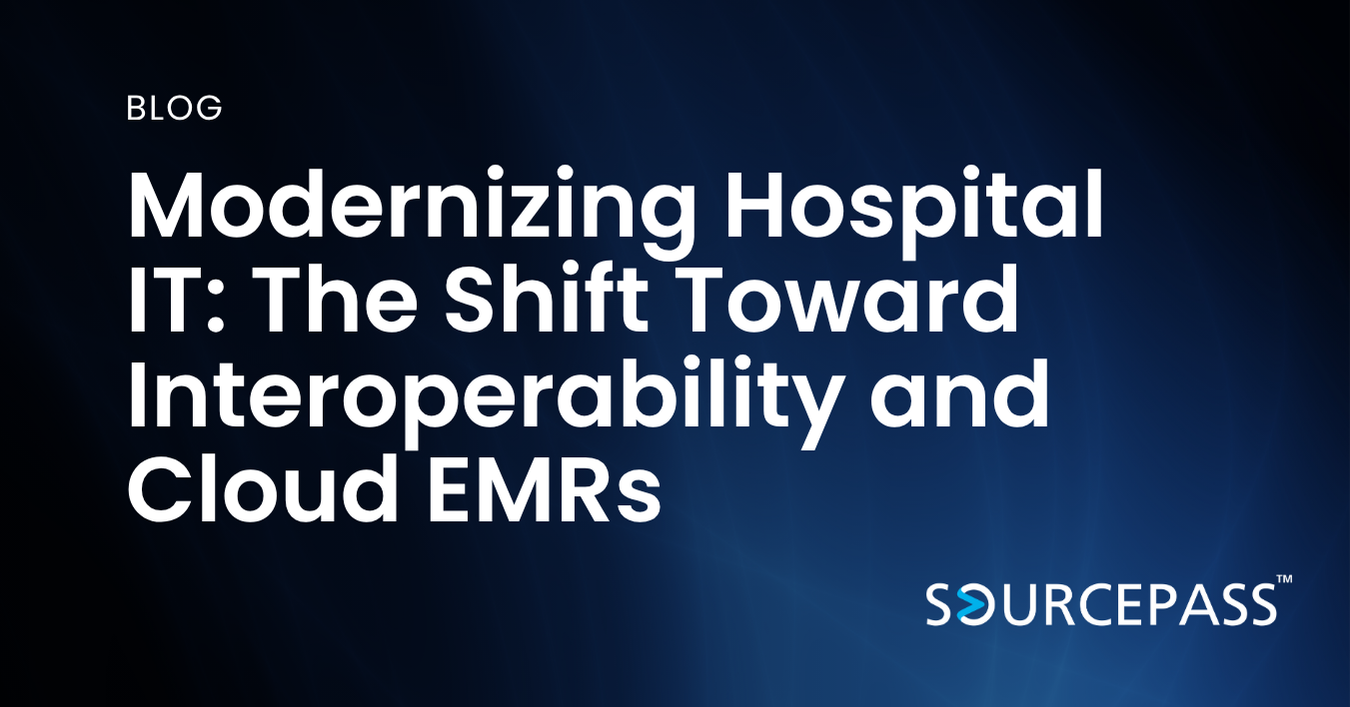Modernizing Hospital IT: The Shift Toward Interoperability and Cloud EMRs
Jun 04, 2025 Alex Davis Industry - Healthcare | IT Services & Support 2 min read



Hospitals today face mounting pressure to deliver high-quality care while managing complex data systems and complying with evolving regulations. At the heart of this transformation is the modernization of hospital IT infrastructure—particularly the shift toward interoperability and cloud-based Electronic Medical Records (EMRs). This article explores how hospitals can embrace these changes to improve patient outcomes, streamline operations, and position themselves for the future of healthcare.
Why Hospital IT Infrastructure Needs an Overhaul
Traditional hospital IT environments are often built on legacy systems that lack the scalability and flexibility needed in today’s fast-paced clinical settings. These outdated systems can hinder care coordination, create security risks, and slow down access to critical patient information. Upgrading hospital IT infrastructure is no longer optional—it is essential for achieving better clinical efficiency and operational resilience.
The Push for EMR Integration and Interoperability
One of the primary goals of modern hospital IT initiatives is EMR integration. Hospitals frequently use multiple software platforms across departments such as radiology, laboratory services, and billing. Without proper integration, these systems operate in silos, making it difficult for providers to access comprehensive patient data in real time.
Interoperability—the ability for different systems to communicate and share data seamlessly—is crucial. Integrated EMRs enable better care coordination, reduce medical errors, and enhance the patient experience. Interoperability also supports population health initiatives by allowing data sharing across healthcare networks and providers.
The Role of Cloud in Healthcare IT
Adopting cloud technology in healthcare is a game-changer for hospital IT infrastructure. Cloud-based EMRs offer several advantages over traditional on-premises systems:
- Scalability: Easily adjust to the needs of expanding hospital systems without costly hardware upgrades.
- Remote Access: Clinicians can securely access patient data from any location, improving care delivery and collaboration.
- Reduced Costs: Cloud services reduce capital expenditures by shifting infrastructure maintenance and upgrades to the vendor.
- Enhanced Security and Compliance: Leading cloud providers offer advanced security measures and regular compliance updates to meet HIPAA and other regulatory standards.
Challenges in Modernizing Hospital IT
While the benefits are clear, modernizing hospital IT systems is not without challenges:
- Data Migration: Moving from legacy systems to cloud-based platforms requires careful planning to avoid data loss or downtime.
- Staff Training: Hospital staff must be trained on new systems to ensure adoption and reduce resistance to change.
- Vendor Coordination: Working with multiple vendors can complicate EMR integration and require strong project management oversight.
Best Practices for Hospital IT Modernization
To ensure a smooth transition toward interoperable and cloud-based solutions, hospitals should consider the following best practices:
- Conduct a Comprehensive IT Assessment: Identify existing gaps in infrastructure, security, and data flow.
- Prioritize Interoperability Standards: Choose EMR systems that support HL7, FHIR, and other industry standards.
- Engage Stakeholders Early: Include clinicians, IT staff, and administrators in the planning and implementation process.
- Partner with Experienced Vendors: Select vendors with a proven track record in healthcare IT and EMR integration.
- Establish a Long-Term IT Roadmap: Develop a strategic plan for phased implementation, maintenance, and future scalability.
The Future of Hospital IT Infrastructure
As healthcare continues to evolve, hospitals must invest in IT systems that support agile, data-driven operations. The shift toward cloud in healthcare and EMR integration is more than a trend—it is a necessary evolution. By focusing on interoperability, scalability, and patient-centric care, hospitals can build an IT foundation that supports better outcomes, regulatory compliance, and financial sustainability.
Best-In-Class Healthcare IT with Sourcepass
Modernizing hospital IT infrastructure is a critical step in transforming healthcare delivery. The move toward cloud-based EMRs and interoperability empowers hospitals to break down data silos, enhance care coordination, and future-proof their operations. With the right strategy and partners, hospitals can successfully navigate the complexities of digital transformation and lead the way in modern healthcare.
If your hospital is exploring ways to modernize its IT infrastructure, start with a comprehensive IT assessment and work with trusted experts in cloud in healthcare and EMR integration.
Subscribe To
Sourcepass Insights
Sourcepass Insights
Stay in the loop and never miss out on the latest updates by subscribing to our newsletter today!


